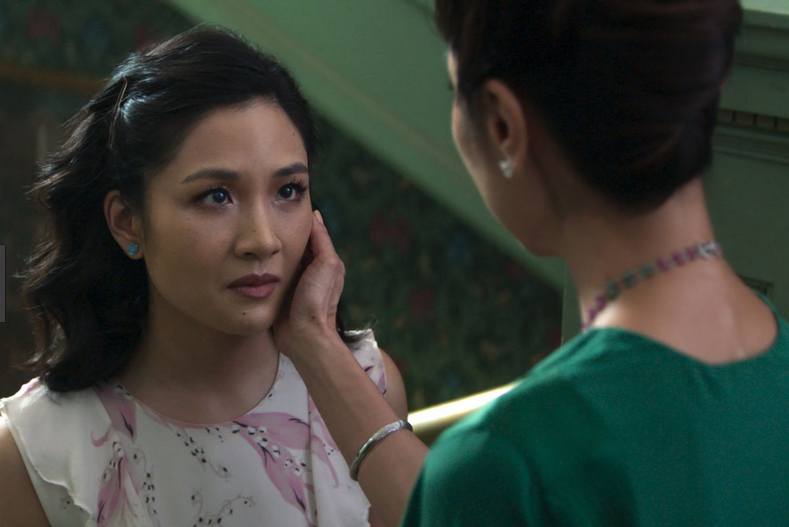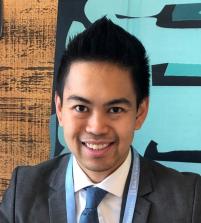Religion in Crazy Rich Asians?
Ed
By Michael BaysaOctober 11, 2018
 Ed. Note: This column contains spoilers.
Ed. Note: This column contains spoilers.
Crazy Rich Asians, a 2018 film directed by Jon M. Chu, has garnered a lot of praise from audience members and movie critics. Both commend it for its casting of Asian actors in roles that go beyond the Kung Fu master or exotic foreigner typecasting Hollywood has perpetuated, and for its subtle exploration of the boundaries between what it means to be “Asian” and “Asian-American.”
However, some publications have critiqued the film for its disappointing lack of religion, its seeming failure to take religion seriously, or its empty religious symbolism, whereas the book upon which it is based more readily explores the religious dimensions of the story. In an interview with Harper’s Bazaar Malaysia, Kevin Kwan, the book’s author, comments that the film focuses on “what it means to be Asian … regardless of race and religion,” suggesting that Asian identity supersedes religion in the film.
But religion does play an important part in the film Crazy Rich Asians. It sheds light on the motivations of the mother, Eleanor Young (Michelle Yeoh), particularly for those who might be unsympathetic to the character because of their cultural distance from her values. The movie contains two explicitly religious scenes: a Bible study with Eleanor and her friends, and a wedding ceremony in a church.
The Bible study scene opens with Eleanor reading Colossians 3:2: “Set your minds on things that are above, not on things that are on the earth.” The study is interrupted by gossip about her son Nick (Henry Golding) and his girlfriend Rachel (Constance Wu). Eleanor and her friends then proceed to read Ephesians 6:4—“Bring up your children in the instructions of the Lord”—until the Bible study group can no longer ignore the rumors surrounding Nick and Rachel.
Throughout the film, it would appear that Eleanor does not take the words of Colossians 3:2 seriously. Her reluctance to accept Nick’s relationship seems to stem from her dislike of Rachel’s socioeconomic status, her family background, and perhaps her ignorance of cultural norms, all of which are concerns associated with “things that are on the earth.”
However, Colossians 3:2, read alongside Ephesians 6:4, serves as a window into Eleanor’s character arc. The “things that are above” and “things that are on the earth” reflect her concerns about Rachel’s character and perhaps, more broadly, American society. Throughout the film, she struggles to understand Nick’s reluctance to leave New York, return to Singapore, and take over the family business. Likewise, Eleanor remains unimpressed by Rachel’s career achievements despite Rachel’s upbringing in a struggling, single-parent, immigrant household. Rachel’s constant emphasis on her accomplishments only further distances her from Eleanor.
Eleanor’s stance comes from her own experience. She explains to Rachel that when she was a student at Oxford, she decided to forego her education to take care of her family. In many ways, she expects to see a similar familial commitment from Nick (and Rachel). For Eleanor, the Colossians reference to “things that are above” might describe an undying commitment to the family, often at the expense of personal ambition, the value Eleanor identifies with the “things on the earth.”
Toward the end of the film, Rachel explains to Eleanor that despite her love for Nick, she wants to honor Nick’s love for his family by conceding to Eleanor’s wishes that they end their relationship. At the same time, Rachel wants Eleanor to know that if Nick does end up fulfilling his familial obligations, it will have been made possible only by her decision to leave.
The film ends with Nick proposing to Rachel using his mother’s ring, a sign that Eleanor finally accepts their relationship. Before this conclusion, Nick and Eleanor have a conversation about Rachel; however, that conversation is inaudible to the viewer, suggesting that the climax of Eleanor’s turn occurs during her discussion with Rachel, not with Nick. Rachel’s selfless love for Nick and his family is what convinces Eleanor that she and Rachel share the same values.
Thus, the Bible study serves as a window into the tension between Rachel and Eleanor, as well as the tension within Eleanor herself. Eleanor is consistently preoccupied with family-centric values, which she expresses through biblical language: the selfless, immaterial “things that are above” juxtaposed against the selfish, material “things that are on the earth.” Without the Bible study scene, it would be difficult to trace these as Eleanor’s primary concerns from the beginning of the film to the end.
Religion is also very much present during the wedding ceremony of Nick’s best friend Colin (Chris Pang) and his fiancée Araminta (Sonoya Mizuno). The scene takes place in a postcolonial church. Inside, tall grass and palms adorn the pews and a river-like water reflection replaces traditional wedding aisle runners, reminiscent of a pre-colonial aesthetic mixed with more modern, fantastical elements. Yet the interior of the wedding cannot mask the church walls behind the décor, or the dimmed lights passing through stained glass windows. In many ways, the wedding becomes a visual clash of cultures that beautifully displays the extravagance of a social class whose privilege affords it the ability to playfully adopt the aesthetics of both worlds.
Observing the interior of the church, Eleanor shakes her head and rhetorically asks, “Is this a church or a paddy field?” Eleanor disapproves of the wedding design and prefers the church’s traditional interior. Coupled with Eleanor’s general distaste for the younger generation’s extravagance, this scene demonstrates her broader anxiety about the next generation’s shifting values. While Nick and Rachel pursue selfish ambition, Nick’s peers in Singapore live extravagant lifestyles devoid of any attention to the values Eleanor espouses.
Religion, then, is the site through which Eleanor wrestles with her anxieties about the survival of her values. Christian texts provide a time-transcending language through which she can draw ultimate dichotomies between the values she holds dear and those which threaten the life she envisions for her family. Church architecture provides the aesthetic of familiarity whose absence, in turn, signals the unfamiliar. For Eleanor and her friends, religion grounds one in a position to understand oneself against western individualism and the needless extravagance of the next generation.
Image: Constance Wu and Michelle Yeoh in Crazy Rich Asians | Photo Credit: Warner Brothers
Michael Baysa is a PhD student at Princeton University’s Department of Religion in their Religion in the Americas subfield. His research focuses on the rise of theologically liberal networks in late eighteenth-century New England. He can be found on Twitter (@MichaelBaysa) or LinkedIn.
Sightings is edited by Brett Colasacco (PhD’18). Sign up here to get Sightings by email.


